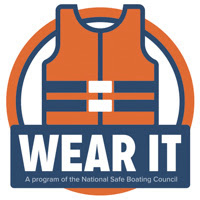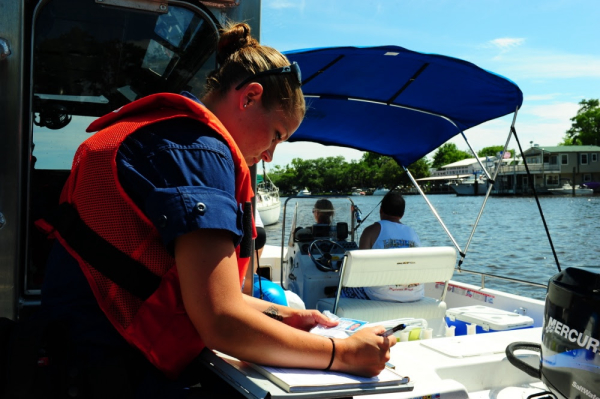Coast Guard Urges Boating Safety as Fishing/Boating Resume
  |
SEATTLE — The Coast Guard urges safety on the water with the reopening of the fishing season and easing of stay-at-home orders across the Pacific Northwest.
Water recreation can be a great way to practice social distancing, but it’s vital to know the safety measures you should exercise.
The Coast Guard realizes boating can be a great way to social distance as the weather improves, but when you do this, please think of the Coast Guard crews and other first responders who are called out to conduct rescue missions and the potential dangers related to coronavirus exposure.
“With boaters and paddlers looking to get back on the water and escape cabin fever, take time to ensure you are prepared,” said Dan Shipman, recreational boating safety specialist, 13th Coast Guard District. “Remember, always maintain a safe speed for the prevailing conditions, keep an eye on others, and keep a safe distance to avoid risk of collision. Always be prepared for an emergency, but have the skills to prevent an accident before it happens.”
Consider these safety tips before heading out on the water:
Wear a life jacket: Life jackets save lives. More than two-thirds of all boating fatalities are drowning incidents and over 80 percent of drowning victims were not wearing a life jacket. Accidents can leave a strong swimmer injured, unconscious, or exhausted in the water.
Never boat under the influence: It is illegal to operate a boat while under the influence of alcohol or drugs. There are stringent penalties for violating BUI/BWI laws, which can include large fines, suspension or revocation of boat operator privileges, and jail time. Alcohol use is the leading known contributing factor in fatal boating accidents.
File a float plan: Leave a detailed float plan with a friend or family member who is staying back. The sooner a party can be reported overdue, the more likely a positive outcome will result. Your float plan should include information that rescue personnel need in order to find you. For examples of a float plan, visit: www.floatplancentral.org
Monitor weather broadcasts: Unpredictable weather and strong winds can develop quickly across the Pacific Northwest. Be sure to check marine forecasts prior to getting underway. Don’t get into conditions that exceeds your vessels capabilities or your own. Forecasts can be heard by tuning to Channels 1 to 5 on a marine radio or by checking the NWS website: www.weather.gov
Take a VHF-FM marine-band radio: Cell phones may lose signal offshore or run out of battery power. They are helpful but are not reliable for emergencies that occur on water. Channel 16 is the marine emergency channel. It should only be used for emergencies.
Bring a Signaling Device: Have a portable device to communicate an emergency on the water. Mariners should have signal flares, a whistle, an emergency position-indicating radio beacon (EPIRB), or a personal locator beacon (PLB) to alert first responders.
Know your vessel: Make sure your vessel is in good mechanical condition and all safety equipment is on board. Operator inattention, improper lookout, operator inexperience, machinery failure, and excessive speed rank as the top five primary contributing factors in accidents.
Dress for the water temperature: Water robs body heat 25 times faster than air, so getting wet only increases the risk of exposure. If the water is below 60 degrees Fahrenheit, you might have 10 minutes of ability before you start to lose dexterity.
You may also like
-
Another Democrat Gun Grabber Calls for Political Violence, This Time with ‘Actual Weapons
-
Dark Web of Taxpayer’s Money Funds Anti-Gun Organization
-
Selected Bill Peroutke for their 2025 Life Membership Award.
-
THANK YOU DEAN FOR ALL YOU DO FOR MANITOWOC COUNTY FISH & GAME
-
Those tragically taken far too soon were brave service members and the dedicated outfitters and hunters from Kansas.
